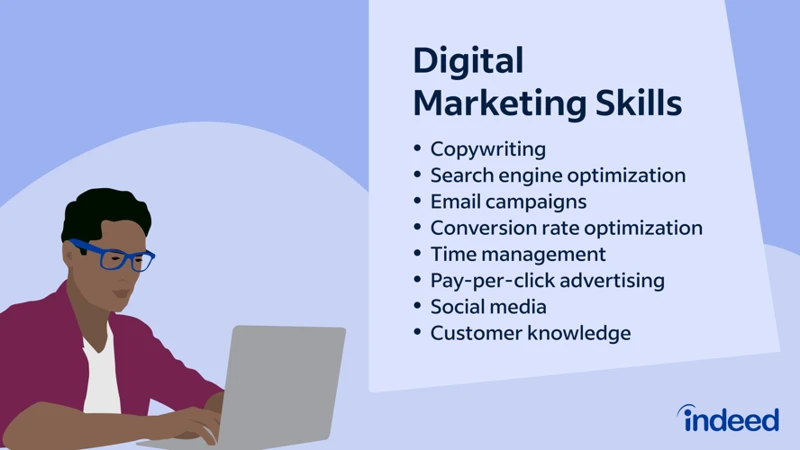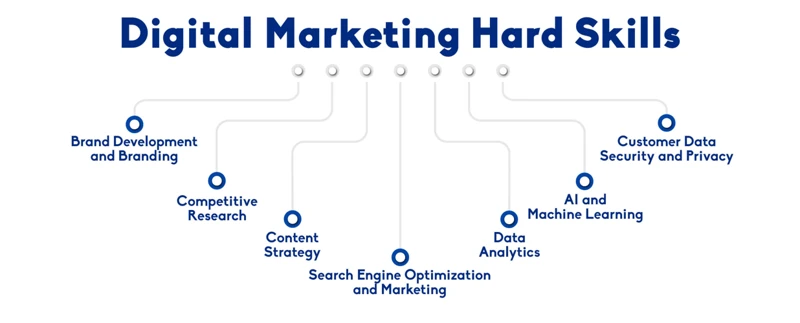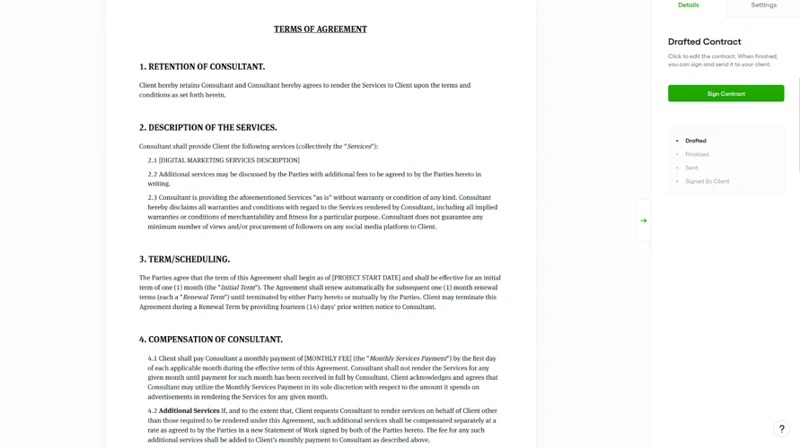If you find yourself struggling to create engaging and effective content, it may be time to hire a writer. A writer can bring expertise and professionalism to your content creation process, saving you time and ensuring consistent brand messaging.
Why Hiring a Writer is Important

In today’s digital age, where content is king, hiring a skilled writer is essential for the success of your business. Here are several reasons why hiring a writer is important:
1. Expertise and Professionalism: Hiring a writer brings expertise and professionalism to your content creation process. A professional writer has the skills and knowledge to craft engaging and persuasive content that resonates with your target audience. They understand the nuances of grammar, syntax, and storytelling, ensuring that your message is clear and impactful.
2. Time and Efficiency: As a business owner, your time is valuable. By hiring a writer, you can focus on other important tasks while the writer takes care of creating high-quality content for your website, blog, or social media platforms. A writer can efficiently research, write, and edit content, saving you precious time and allowing you to concentrate on growing your business.
3. Consistency and Brand Voice: Consistency is key when it comes to building a strong brand identity. A professional writer can help maintain a consistent tone, style, and voice across all your content platforms. They will understand your brand’s values and objectives, ensuring that every piece of content aligns with your brand image and resonates with your target audience.
4. Search Engine Optimization (SEO): Hiring a writer who is knowledgeable about SEO is crucial for increasing your online visibility. An SEO-savvy writer understands how to incorporate relevant keywords, meta tags, and backlinks into your content, helping your website rank higher in search engine results. This can lead to increased organic traffic and improved conversions for your business.
5. Fresh Perspective and Creativity: Bringing in a writer can inject fresh ideas and creativity into your content strategy. They can offer a unique perspective and come up with innovative approaches to engage your audience. A skilled writer knows how to captivate readers, evoke emotions, and tell compelling stories that leave a lasting impression.
By hiring a writer, you can harness their expertise, save time, maintain consistency, boost your online visibility, and infuse creativity into your content. Now that we understand the importance of hiring a writer, let’s explore the qualities to look for when searching for the perfect candidate.
Qualities to Look for in a Writer

When it comes to hiring a writer, there are several essential qualities you should look for to ensure effective content creation. 1. Excellent Writing Skills: A writer should possess impeccable grammar and punctuation, as well as the ability to convey ideas clearly and concisely. 2. Knowledge of SEO and Online Marketing: In today’s digital landscape, it is crucial to find a writer who understands the principles of SEO and can optimize your content to improve search engine rankings. They should be familiar with keyword research, meta tags, and backlinking strategies. 3. Research and Analytical Skills: A writer should be capable of conducting thorough research to ensure the accuracy and credibility of their content. They should also possess strong analytical skills to interpret data and provide valuable insights to enhance your content strategy. By finding a writer who possesses these qualities, you can be confident in their ability to create engaging and impactful content that drives results for your business.
1. Excellent Writing Skills
When hiring a writer, one of the most important qualities to look for is excellent writing skills. Here are some key aspects to consider:
1. Grammar and Language: A writer with excellent writing skills has a strong command of grammar, punctuation, and language usage. They should be able to write in a clear, concise, and grammatically correct manner. Their writing should be free from spelling errors and typos, ensuring a polished and professional final product.
2. Structure and Organization: An excellent writer knows how to structure their writing effectively. They understand the importance of introductions, body paragraphs, and conclusions. They can organize information logically and present it in a cohesive and engaging manner. Their writing flows smoothly, guiding the reader through the content effortlessly.
3. Adaptability: A skilled writer can adapt their writing style to meet the needs of different projects and target audiences. They can switch between formal and informal tones, adjusting their language and vocabulary accordingly. Whether it’s a blog post, a product description, or a social media caption, an excellent writer can adapt their writing to suit the specific requirements of each piece.
4. Creativity: Writing that captivates and engages readers requires a touch of creativity. An excellent writer possesses a creative mindset and can think outside the box. They can come up with unique ideas, angles, and perspectives to make your content stand out. Their creativity allows them to craft compelling stories, evoke emotions, and leave a lasting impression on your audience.
5. Research and Fact-Checking: Good writing is backed by thorough research and accurate information. An excellent writer knows how to conduct research effectively, gathering reliable sources and verifying facts. They can synthesize complex information into digestible content and ensure that their writing is accurate, credible, and well-informed.
When evaluating writer candidates, pay close attention to their writing samples. Assess their ability to communicate ideas clearly, structure their writing effectively, and engage the reader. Look for diverse writing styles and genres to gauge their adaptability. By prioritizing excellent writing skills, you can ensure that the content produced by your hired writer will be of the highest quality. To learn more about the importance of SEO in content creation, check out our article on how to make money with SEO.
2. Knowledge of SEO and Online Marketing
When hiring a writer, it is crucial to find someone who possesses knowledge of SEO and online marketing. In today’s digital landscape, having content that is optimized for search engines is essential for increasing visibility and driving organic traffic to your website. A writer with SEO knowledge understands the importance of incorporating relevant keywords into the content in a natural and strategic manner. They know how to conduct keyword research, identify long-tail keywords, and optimize meta tags and headings. Additionally, an SEO-savvy writer understands the significance of backlinks and internal linking to improve website authority and user experience. They are familiar with on-page and off-page optimization techniques, ensuring that your content adheres to best practices for search engine rankings. With their expertise in online marketing, they can also create content that aligns with your marketing goals and targets your specific audience. Whether it’s crafting engaging blog posts, creating persuasive landing page copy, or developing compelling social media content, a writer with knowledge of SEO and online marketing can help you effectively reach your target audience and grow your online business. To learn more about online marketing and how it can help your business thrive, check out this guide on how to grow your online business.
3. Research and Analytical Skills
When it comes to hiring a writer, one crucial quality to look for is strong research and analytical skills. A writer with these skills can go beyond surface-level information and delve deep into a topic to provide accurate and well-informed content.
Research Skills: A writer with excellent research skills knows how to gather reliable and relevant information from various sources. They can conduct thorough research using reputable websites, academic journals, books, and interviews. This ensures that the content they produce is accurate, up-to-date, and supported by credible sources.
Analytical Skills: Analytical skills are essential for a writer to effectively process and interpret information. A writer with strong analytical skills can critically analyze data, identify patterns, and draw meaningful conclusions. This enables them to present complex ideas in a clear and concise manner, making the content more engaging and valuable to the reader.
Attention to Detail: A writer with strong research and analytical skills pays attention to detail. They meticulously fact-check their work, ensuring that all information is accurate and reliable. They also have the ability to spot inconsistencies or gaps in the information they come across during their research process.
Adaptability: Research and analytical skills are not limited to a single topic or industry. A writer with these skills can adapt to different subjects and industries, quickly grasping new concepts and understanding the target audience’s needs. This allows them to produce well-researched content that is tailored to specific niches or target markets.
Having a writer with strong research and analytical skills is crucial for creating high-quality content that is informative, accurate, and valuable to your audience. Now that we have covered the importance of this quality, let’s explore where you can find potential writer candidates.
Where to Find Writers

When it comes to finding writers, you have several options to consider. One of the most popular choices is to explore freelance platforms such as Upwork, Freelancer, or Fiverr. These platforms provide a wide range of writers with various expertise and experience levels, allowing you to find the perfect match for your needs. Another option is to collaborate with content agencies, which have a team of writers specializing in different industries and niches. These agencies can provide a streamlined process and ensure consistent quality across your content. Additionally, professional networks like LinkedIn can be a valuable resource for finding talented writers who are actively seeking new opportunities. By leveraging these platforms and networks, you can easily connect with skilled writers who can help you achieve your content creation goals. If you’re interested in pursuing a career in marketing, check out our guide on how to start a marketing career for valuable insights and tips.
1. Freelance Platforms
When it comes to finding writers, freelance platforms are a popular choice for many businesses. These platforms provide a convenient and efficient way to connect with talented writers from around the world. Here are some key points to consider when using freelance platforms to hire a writer:
Wide Talent Pool: Freelance platforms offer access to a vast pool of talented writers with diverse backgrounds and expertise. You can find writers specializing in various niches, such as technology, finance, health, or marketing. This allows you to find a writer who has the specific knowledge and skills required for your content needs.
Portfolio and Reviews: Freelance platforms typically provide writers with the opportunity to showcase their work through portfolios. These portfolios contain writing samples, allowing you to evaluate the writer’s style, tone, and quality of work. Additionally, you can read reviews and feedback from previous clients to get a better understanding of the writer’s professionalism and reliability.
Communication and Collaboration: Freelance platforms usually have built-in messaging systems that facilitate communication between clients and writers. This ensures smooth collaboration throughout the content creation process. You can discuss project details, provide feedback, and clarify any questions or concerns directly with the writer.
Budget Flexibility: Freelance platforms offer flexibility in terms of budgeting. You can find writers with varying rates, allowing you to choose one that aligns with your budget and project requirements. Some platforms also offer options for fixed-price projects or hourly rates, giving you the freedom to decide which payment structure works best for you.
Secure Payment Systems and Dispute Resolution: Freelance platforms typically provide secure payment systems, ensuring that both parties are protected. Payments are often held in escrow until the project is completed to the client’s satisfaction. In case of any disputes or issues, the platform may offer mediation or resolution services to help resolve conflicts.
When using freelance platforms, it is important to carefully review writers’ profiles, portfolios, and reviews to ensure they meet your specific requirements. Communication and clear expectations are key to a successful working relationship. Now that we have explored freelance platforms, let’s move on to the next section, which discusses another avenue for finding writers – content agencies.
2. Content Agencies
When it comes to finding competent and reliable writers, content agencies can be a great resource. Content agencies are companies that specialize in providing writing services to businesses. Here are some key points to consider when exploring the option of hiring through content agencies:
1. Diverse Talent Pool: Content agencies typically have a diverse pool of writers who specialize in various industries and writing styles. This means they can match you with a writer who has expertise in your specific niche, ensuring that the content produced is well-informed and tailored to your target audience.
2. Quality Assurance: Content agencies often have a rigorous vetting process to select writers, ensuring that they meet certain quality standards. They may require writers to submit writing samples, undergo tests, or provide references. This quality assurance process helps ensure that you are working with skilled and experienced writers who can deliver high-quality content.
3. Scalability and Flexibility: Content agencies can provide a scalable solution for your content needs. Whether you require a single article or an ongoing content strategy, agencies can accommodate your requirements. They have the capacity to handle large volumes of work and can scale up or down based on your business needs.
4. Project Management: When you hire a writer through a content agency, you often have access to project management services. These services can help streamline the content creation process, ensuring that deadlines are met, revisions are handled efficiently, and communication is smooth. Project managers can act as a liaison between you and the writer, saving you time and effort.
5. Accountability and Support: Content agencies take responsibility for the work produced by their writers. If you encounter any issues or need revisions, you can reach out to the agency for assistance. They are invested in maintaining good client relationships and will work with you to address any concerns or make necessary adjustments.
When considering content agencies, it’s important to research their reputation, read client reviews, and inquire about their pricing structure and payment terms. This will help you make an informed decision and find an agency that aligns with your business goals and budget. Next, let’s explore another avenue for finding writers – professional networks.
3. Professional Networks
Professional networks are a valuable resource for finding skilled writers who can meet your content creation needs. These networks are online platforms where professionals from various industries connect and collaborate. Here’s why professional networks are an excellent option for hiring a writer:
1. Access to a Diverse Pool of Talent: Professional networks attract individuals from different backgrounds and industries, providing you with access to a diverse pool of talented writers. Whether you need someone with expertise in finance, technology, or healthcare, you can find professionals who have the knowledge and experience to create content that aligns with your industry.
2. Verified Profiles and Recommendations: Professional networks typically require users to create detailed profiles that showcase their skills, experience, and qualifications. This allows you to evaluate potential writer candidates based on their credentials and past work. Additionally, many networks have a recommendation feature, where clients can leave feedback and ratings for writers they have worked with. These recommendations can give you valuable insights into a writer’s professionalism and work ethic.
3. Networking Opportunities: Professional networks offer networking opportunities that can benefit your business in the long run. By connecting with writers on these platforms, you can establish relationships that may lead to future collaborations or partnerships. Networking within the professional community can also provide you with valuable industry insights and access to other resources that can support your content creation efforts.
4. Direct Communication and Collaboration: Professional networks often have built-in communication tools that allow you to directly interact with potential writer candidates. This enables you to discuss project details, ask questions, and gauge their responsiveness and communication skills. Direct communication also facilitates collaboration throughout the content creation process, ensuring that the writer understands your requirements and delivers content that meets your expectations.
5. Niche-Specific Communities: Many professional networks have niche-specific communities where writers with specialized knowledge gather. If you require content in a specific niche or industry, these communities can be a goldmine for finding writers who possess the necessary expertise. Whether you need technical writers, medical writers, or legal writers, these communities can connect you with professionals who understand the complexities of your field.
When searching for a writer on professional networks, be sure to review their profiles, portfolios, and client recommendations. Take advantage of the networking opportunities these platforms offer and engage in direct communication to ensure a good fit. Professional networks can be a valuable resource for finding talented writers who can bring their expertise to your content creation projects.
How to Evaluate Writer Candidates

When evaluating writer candidates, it’s crucial to assess their skills and qualifications to ensure they are the right fit for your content needs. Here are three key steps to effectively evaluate writer candidates:
1. Review Writing Samples: Request writing samples from potential candidates to evaluate their writing style, tone, and grammar. Look for samples that demonstrate their ability to engage readers, convey information clearly, and showcase their versatility in different formats.
2. Assess SEO Knowledge: In today’s digital landscape, having a writer with SEO knowledge is essential. Assess their understanding of keyword research, optimization techniques, and their ability to write content that is search engine-friendly. Ask about their experience in optimizing content for higher search engine rankings.
3. Conduct Interviews: Interviews provide an opportunity to gauge a candidate’s communication skills, work ethic, and overall fit with your company culture. Ask relevant questions about their writing process, ability to meet deadlines, and willingness to collaborate. This will help you determine if they have the qualities and mindset necessary for successful content creation.
By following these steps, you can effectively evaluate writer candidates and make an informed decision that aligns with your content goals and objectives. Next, we will explore the importance of setting clear expectations and establishing effective communication channels with your chosen writer.
1. Review Writing Samples
When evaluating writer candidates, one of the most important steps is to review their writing samples. This allows you to assess their writing style, tone, and overall quality of their work. Here are some key points to consider when reviewing writing samples:
1. Quality and Clarity: Pay attention to the clarity and coherence of the writer’s writing. Look for samples that demonstrate a strong command of grammar, spelling, and punctuation. The content should be well-structured, organized, and easy to understand.
2. Relevance and Variety: Look for samples that are relevant to your industry or niche. This will give you an idea of the writer’s ability to adapt their writing style to match your brand’s voice. Additionally, consider the variety of topics covered in their samples. A versatile writer who can tackle different subjects will bring a fresh perspective to your content.
3. Engagement and Persuasiveness: Assess how engaging and persuasive the writer’s samples are. Look for examples that captivate the reader’s attention, evoke emotion, and compel them to take action. A skilled writer should be able to create content that resonates with your target audience and drives results.
4. SEO Optimization: If SEO is important to your content strategy, review the writer’s samples for evidence of their understanding of SEO principles. Look for samples that incorporate relevant keywords naturally and seamlessly. The content should demonstrate an understanding of how to optimize for search engines without sacrificing readability.
5. Consistency and Brand Alignment: Consider how well the writer’s samples align with your brand’s voice and values. Look for samples that reflect the tone and style you want to convey. A writer who can seamlessly integrate into your brand’s identity will contribute to a cohesive and consistent content strategy.
Remember to review multiple writing samples from each candidate to get a comprehensive understanding of their abilities. This step will help you identify writers who can meet your specific content needs and contribute to the success of your business. Once you have reviewed the writing samples, it’s time to move on to assessing the candidate’s knowledge of SEO and online marketing.
2. Assess SEO Knowledge
When evaluating writer candidates, it is crucial to assess their knowledge of SEO (Search Engine Optimization). Here are some key factors to consider when assessing their SEO knowledge:
1. Keyword Research: A skilled writer should understand the importance of keyword research in optimizing content for search engines. They should be able to identify relevant keywords and incorporate them naturally into the content without keyword stuffing.
2. On-Page Optimization: Writers with SEO knowledge should have a good understanding of on-page optimization techniques. This includes optimizing meta tags, headings, URLs, and image alt tags to improve search engine visibility.
3. Link Building: An SEO-savvy writer should have a basic understanding of link building strategies. They should be familiar with the concept of backlinks and how to incorporate them into content to enhance its credibility and authority.
4. Content Formatting: Proper formatting is essential for SEO. Writers should know how to structure content using subheadings, bullet points, and numbered lists to make it more readable and search engine friendly.
5. User Experience: SEO goes hand in hand with a positive user experience. A knowledgeable writer should understand the importance of creating content that is engaging, informative, and easy to navigate for readers.
6. Analytics and Reporting: While not directly related to writing, understanding how to analyze website analytics and report on key SEO metrics is a valuable skill for a writer. This helps them track the performance of their content and make data-driven optimizations.
During the evaluation process, consider asking candidates about their previous experience with SEO, requesting writing samples that demonstrate their understanding of SEO best practices, and discussing hypothetical scenarios to gauge their problem-solving abilities in an SEO context. By assessing a writer’s SEO knowledge, you can ensure that they are equipped to create content that not only engages readers but also boosts your website’s visibility in search engine results.
3. Conduct Interviews
Once you have reviewed the writing samples and assessed the SEO knowledge of potential writer candidates, the next step is to conduct interviews to further evaluate their suitability for the role. Interviews provide an opportunity to gauge a writer’s communication skills, professionalism, and cultural fit with your organization. Here are some key points to consider when conducting interviews:
1. Prepare a Structured Interview: Before the interview, create a list of questions that will help you assess the candidate’s qualifications and experience. This can include questions about their writing process, ability to meet deadlines, and familiarity with your industry or niche. Having a structured interview ensures consistency in evaluating each candidate.
2. Assess Communication Skills: During the interview, pay attention to how well the candidate communicates. Are they able to articulate their thoughts clearly and concisely? Do they actively listen and ask relevant questions? Effective communication skills are crucial for collaborating with the writer and conveying your expectations and feedback.
3. Evaluate Problem-Solving Abilities: Present the candidate with hypothetical scenarios or challenges that they may face while working on content projects. Ask them how they would approach these situations and find solutions. This will give you insight into their problem-solving abilities and their ability to adapt to different situations.
4. Cultural Fit: Consider whether the candidate aligns with your company’s values, mission, and culture. A writer who understands and resonates with your brand identity is more likely to produce content that accurately reflects your organization’s voice and values.
5. Request References: Ask the candidate for references from previous clients or employers. Contact these references to gain a better understanding of the candidate’s work ethic, reliability, and ability to meet deadlines.
Remember, the interview process is an opportunity not only for you to evaluate the candidate but also for the candidate to assess whether your organization is a good fit for them. Be transparent about your expectations and the nature of the work to ensure both parties are on the same page.
Once you have conducted interviews and gathered all the necessary information, you can make an informed decision about which writer to hire. The next step is to set clear expectations and establish effective communication channels to ensure a successful working relationship.
Setting Expectations and Communication

Setting clear expectations and establishing effective communication channels are crucial when working with a writer. This ensures that both parties are on the same page and can collaborate smoothly. Firstly, providing clear briefs and guidelines is essential. Clearly outline the objectives, target audience, tone, and style requirements for each piece of content. This helps the writer understand your expectations and deliver content that aligns with your brand. Secondly, regular communication is key to maintaining a successful working relationship. Schedule check-ins, provide feedback, and address any concerns or questions promptly. This fosters open and transparent communication, allowing for adjustments and improvements along the way. Lastly, feedback and performance evaluation should be an ongoing process. Recognize and acknowledge the writer’s strengths and provide constructive feedback to help them grow. By setting expectations and maintaining open lines of communication, you can ensure a productive and collaborative partnership with your writer.
1. Clear Briefs and Guidelines
When working with a writer, it is crucial to provide clear briefs and guidelines to ensure that they understand your expectations and can deliver the desired results. Here are some key points to consider when providing clear briefs and guidelines:
1. Clearly Define the Objective: Start by clearly outlining the objective of the content piece. Whether it’s a blog post, an article, or a social media caption, clearly communicate what you want to achieve with the content. This could be increasing brand awareness, driving traffic to your website, or providing valuable information to your audience.
2. Specify the Target Audience: Identify the specific target audience for the content. This will help the writer tailor their writing style, tone, and language to resonate with the intended readers. Provide information about their demographics, interests, and pain points to give the writer a better understanding of who they are writing for.
3. Provide Key Points and Structure: Give the writer a clear structure for the content piece. Provide key points, subheadings, or bullet points that you want them to cover. This will help them organize their thoughts and ensure that they address all the necessary information in a logical and coherent manner.
4. Style and Tone Guidelines: Communicate the desired style and tone for the content. Do you want it to be formal or conversational? Professional or casual? By providing specific guidelines, you can ensure that the content aligns with your brand’s voice and resonates with your target audience.
5. Formatting and Length: Specify any formatting requirements, such as headings, bullet points, or numbered lists. Additionally, indicate the desired length of the content piece. This will help the writer structure the content appropriately and meet your expectations.
6. Examples and References: If you have any examples or references that demonstrate the style, tone, or structure you are looking for, provide them to the writer. This will give them a visual representation of your expectations and help them align their writing with your vision.
7. Allow for Creativity: While it’s important to provide clear guidelines, also allow the writer some creative freedom. Encourage them to bring their unique ideas and perspectives to the content. This can result in fresh and engaging content that stands out from the competition.
By providing clear briefs and guidelines, you set the writer up for success and ensure that they can deliver content that meets your requirements and exceeds your expectations. Effective communication and collaboration play a key role in achieving the desired outcomes for your content creation efforts.
2. Regular Communication
Regular communication is a crucial aspect of effectively working with a writer. It ensures that both parties are on the same page and allows for a smooth collaboration. Here are some key points to consider when it comes to regular communication:
1. Frequency: Establish a regular communication schedule with your writer. This could be weekly check-ins, daily updates, or any other frequency that works best for both parties. Consistency in communication helps build trust and keeps the project on track.
2. Communication Channels: Determine the preferred method of communication. Whether it’s email, phone calls, video conferences, or project management tools, make sure you are both comfortable with the chosen channels. Using technology can facilitate real-time communication and make it easier to address any questions or concerns promptly.
3. Clear Expectations: Clearly define the expectations for communication from the beginning. Let the writer know how often you expect updates, progress reports, or any other relevant information. This sets a clear framework for regular communication and ensures that everyone is on the same page.
4. Prompt Responses: Respond to your writer’s messages in a timely manner. This shows respect for their time and effort and helps maintain a productive working relationship. If there are any delays in responding, make sure to communicate that to the writer to manage their expectations.
5. Open Dialogue: Encourage open and honest communication with your writer. Create an environment where they feel comfortable asking questions, seeking clarification, or suggesting improvements. This fosters a collaborative atmosphere and allows for the best possible outcomes.
6. Feedback and Updates: Provide regular feedback and updates to your writer. Acknowledge their efforts, point out areas of improvement, and offer constructive feedback to help them grow and refine their work. Regular feedback ensures that the content aligns with your expectations and helps the writer understand your preferences better.
Remember, regular communication is essential for a successful working relationship with your writer. It promotes transparency, collaboration, and ultimately leads to the creation of high-quality content that meets your business objectives. Now, let’s move on to the next section and explore the importance of feedback and performance evaluation in effective content creation.
3. Feedback and Performance Evaluation
When it comes to managing and collaborating with writers, providing feedback and conducting performance evaluations is crucial for maintaining a high standard of content quality. Here are some key considerations for effective feedback and performance evaluation:
1. Constructive Feedback: Providing constructive feedback is essential for helping writers improve their skills and meet your expectations. Be specific about what you liked and areas where they can improve. Offer suggestions for revisions or provide examples to illustrate your feedback. Remember to strike a balance between highlighting strengths and addressing areas for growth.
2. Timely Feedback: Timely feedback is important to ensure that writers can make necessary adjustments and revisions before moving on to the next project. Providing feedback promptly shows that you value their work and helps maintain productivity and momentum. Aim to provide feedback within a reasonable timeframe to allow for revisions and improvements.
3. Performance Evaluation: Regular performance evaluations provide an opportunity to assess a writer’s overall performance and progress over time. Consider factors such as adherence to deadlines, quality of work, ability to follow instructions, and responsiveness to feedback. Use a standardized evaluation system or create your own criteria to ensure consistency and fairness.
4. Recognition and Motivation: Recognizing and acknowledging a writer’s achievements and contributions can boost motivation and morale. Celebrate milestones, exceptional work, or positive feedback from readers or clients. This recognition can inspire writers to continue delivering high-quality content and foster a positive working relationship.
5. Open Communication: Establishing open lines of communication with your writers is essential for effective feedback and performance evaluation. Encourage writers to ask questions, seek clarification, or provide input on the content creation process. Regular check-ins and open dialogue can foster a collaborative environment and improve the overall quality of the work.
Remember, feedback and performance evaluation should be a two-way process. Be open to receiving feedback from writers as well, as they may have valuable insights or suggestions for improvement. By providing constructive feedback, conducting timely evaluations, recognizing achievements, and maintaining open communication, you can create a positive feedback loop that leads to continuous improvement and a successful working relationship with your writers.
Agreeing on Rates and Contracts

When it comes to agreeing on rates and contracts with a writer, clear communication and transparency are key. Here are some important factors to consider:
1. Hourly vs. Project-Based Rates: Decide whether you want to pay the writer on an hourly basis or for each project they complete. Hourly rates can be beneficial for ongoing work or when the scope of the project is uncertain. On the other hand, project-based rates provide a fixed cost for a specific deliverable.
2. Intellectual Property Rights: Clearly outline who will own the rights to the content created by the writer. Typically, the writer retains the copyright, but you may negotiate for exclusive rights or licensing agreements if needed.
3. Confidentiality Agreements: If your content involves sensitive information or trade secrets, it’s important to have a confidentiality agreement in place. This ensures that the writer will not disclose any confidential information they come across during the course of their work.
By discussing and agreeing on these factors upfront, you can avoid any misunderstandings or disputes down the line. It’s essential to have a written contract that outlines all the terms and conditions of your agreement, including payment terms, deadlines, and any additional expectations.
1. Hourly vs. Project-Based Rates
When it comes to agreeing on rates with a writer, there are two main options to consider: hourly rates or project-based rates. Each has its own advantages and it’s important to choose the option that aligns with your specific needs and budget.
Hourly Rates: Paying a writer by the hour is a common approach, especially for ongoing projects or tasks that require regular updates and revisions. Hourly rates provide a sense of flexibility, as you only pay for the actual time spent on the project. This can be beneficial when the scope of the work is not clearly defined or if there are frequent changes or additions to the content. Hourly rates also allow for more direct oversight of the writer’s time and progress.
Project-Based Rates: On the other hand, project-based rates involve paying a fixed amount for the completion of a specific project or deliverable. This approach works well when the scope of the work is clearly defined and the deliverables are well-defined. Project-based rates provide predictability in terms of cost and timeline, making it easier to budget and plan for the project. It also allows the writer to focus on delivering a high-quality end product without the need to track hours.
When deciding between hourly and project-based rates, consider factors such as the complexity and length of the project, the level of ongoing collaboration required, and your budget constraints. It’s important to have a transparent discussion with the writer about their preferred rate structure and come to a mutual agreement that works for both parties. Additionally, consider including a payment schedule and milestone payments to ensure a fair and efficient payment process.
Now that you understand the options for rates and contracts, let’s move on to the next step: onboarding and training the writers to ensure they are equipped with the necessary tools and knowledge to create effective content.
2. Intellectual Property Rights
When hiring a writer, it is crucial to address the issue of intellectual property rights. Intellectual property refers to the legal rights that protect the creations of the human mind, such as articles, blog posts, and other written works. Here are some key considerations regarding intellectual property rights:
1. Ownership: Clearly define the ownership of the content created by the writer. In most cases, the content should belong to the client or employer. This ensures that you have full control over the content and can use it as you see fit.
2. Usage Rights: Specify the rights granted to the client. This includes whether the client has exclusive rights to the content or if the writer can reuse or repurpose it for other clients. It is important to have a clear agreement to avoid any misunderstandings or conflicts in the future.
3. Attribution: Determine how the writer should be credited for their work. This can include including their name as the author or providing a byline. It is important to give proper credit to the writer for their contribution to the content.
4. Confidentiality: If the content contains sensitive or proprietary information, it is important to have a confidentiality agreement in place. This ensures that the writer will not disclose or share any confidential information they may come across during their work.
5. Duration of Rights: Clarify the duration of the rights granted to the client. This can be for a specific period of time or indefinitely. It is important to have a clear understanding of how long the client can use the content without any restrictions.
When discussing intellectual property rights, it is advisable to consult with a legal professional to ensure that all aspects are properly addressed and that both parties are protected. By clearly defining intellectual property rights, you can avoid potential disputes and ensure a smooth working relationship with your writer.
3. Confidentiality Agreements
Confidentiality agreements are a crucial aspect of the hiring process when it comes to working with writers. These agreements help protect your sensitive information and ensure that your company’s proprietary knowledge remains secure. Here are some key points to consider when it comes to confidentiality agreements:
1. Protecting Intellectual Property: When you hire a writer, they may have access to confidential information about your business, such as trade secrets, marketing strategies, or upcoming product launches. A confidentiality agreement ensures that the writer cannot disclose or use this information for any purpose other than their work with your company.
2. Maintaining Client Privacy: If your business involves working with clients or customers, it is essential to safeguard their personal information. A confidentiality agreement ensures that the writer will handle this information with the utmost care and not disclose it to any unauthorized parties.
3. Non-Disclosure and Non-Compete Clauses: Confidentiality agreements often include non-disclosure and non-compete clauses. A non-disclosure clause prohibits the writer from sharing any confidential information with third parties, while a non-compete clause prevents the writer from working with your competitors for a certain period after the contract ends.
4. Clear Terms and Duration: It is crucial to clearly outline the terms and duration of the confidentiality agreement. This includes specifying the information covered, the duration of the agreement, and any exceptions or limitations. By clearly defining these terms, both parties can have a clear understanding of their obligations and responsibilities.
5. Legal Protection: Having a confidentiality agreement in place provides legal protection in the event of a breach. It allows you to take legal action and seek remedies if the writer violates the terms of the agreement, ensuring that your confidential information remains protected.
Before finalizing a contract with a writer, it is important to consult with legal professionals to ensure that the confidentiality agreement is comprehensive and enforceable. By implementing confidentiality agreements, you can have peace of mind knowing that your valuable information is safeguarded and your business remains secure.
Onboarding and Training Writers

When onboarding and training writers, it is crucial to ensure they have a solid understanding of your brand’s guidelines and expectations. Here are some key steps to successfully onboard and train writers:
1. Orientation and Introduction: Start by providing new writers with an orientation session that introduces them to your company’s values, mission, and target audience. This will help them gain a better understanding of your brand’s voice and tone.
2. Style Guides and Brand Guidelines: Share your style guides and brand guidelines with the writers. These documents outline specific writing styles, formatting preferences, and any industry-specific terminology. This will help writers align their work with your brand’s image.
3. SEO Training and Tools: If SEO is an important aspect of your content strategy, provide training on SEO best practices. Teach writers how to conduct keyword research, optimize content for search engines, and use SEO tools effectively.
4. Feedback and Revision: Establish a feedback loop where writers can submit their work for review and receive constructive feedback. Encourage open communication and collaboration to ensure that writers understand and incorporate feedback into their future work.
5. Clear Communication Channels: Set up clear communication channels where writers can ask questions, seek clarification, or discuss any challenges they may face. This will help foster a supportive and collaborative environment.
By following these steps, you can ensure that your writers are onboarded effectively and receive the necessary training to produce high-quality content that aligns with your brand’s guidelines and objectives.
1. Orientation and Introduction
When onboarding a new writer, the orientation and introduction process is crucial for setting them up for success. Here are some key steps to consider:
1. Provide a Welcome Package: Begin by creating a welcome package that includes important information about your company, its mission, values, and target audience. This package should also include any style guides or brand guidelines that the writer should adhere to when creating content.
2. Introduce the Team: Introduce the writer to the rest of your team, either through a virtual meeting or by providing an organizational chart with names and roles. This will help the writer understand the structure of the company and foster a sense of belonging.
3. Set Clear Expectations: Clearly communicate your expectations regarding deadlines, quality standards, and any specific requirements for the content. This will ensure that the writer understands what is expected of them from the beginning.
4. Provide Access to Tools and Resources: Grant the writer access to any necessary tools or platforms they will need to complete their work effectively. This could include content management systems, keyword research tools, or project management software.
5. Offer Training and Support: Provide any necessary training on your company’s content strategy, SEO best practices, and any specific guidelines for writing in your industry. This will enable the writer to create content that aligns with your goals and targets the right audience.
6. Encourage Communication: Establish open lines of communication with the writer, encouraging them to ask questions, seek clarification, and provide feedback. Regular check-ins and meetings can help ensure that the writer feels supported and can address any challenges they may encounter.
By following these steps, you can ensure that your new writer feels welcomed, informed, and equipped to produce high-quality content that aligns with your brand’s voice and objectives. Effective orientation and introduction are key elements in building a strong foundation for a successful working relationship.
2. Style Guides and Brand Guidelines
When working with a writer, it is important to provide them with clear style guides and brand guidelines to ensure consistency in your content. Here are some key points to consider when establishing style guides and brand guidelines for your writer:
1. Tone and Voice: Clearly define the tone and voice you want to convey through your content. Whether it’s professional, friendly, or authoritative, make sure your writer understands the desired tone and voice to maintain consistency across all pieces of content.
2. Formatting and Structure: Specify any specific formatting requirements for your content. This could include headings, subheadings, bullet points, or any other structural elements that align with your brand’s style. Consistent formatting enhances readability and helps convey information effectively.
3. Use of Keywords: If you have specific keywords that you want to target for SEO purposes, provide a list to your writer. This will help them incorporate these keywords seamlessly into the content without compromising the quality or readability.
4. Brand Messaging: Clearly outline your brand’s key messages, values, and unique selling propositions. This will help the writer understand your brand’s identity and ensure that the content aligns with your overall branding strategy.
5. Grammar and Language Style: Specify any preferred grammar rules or language style guides that you want your writer to follow. This includes things like spelling preferences, capitalization rules, and punctuation guidelines. Consistency in grammar and language style strengthens your brand’s credibility.
6. Examples and Samples: Provide your writer with examples of previously published content or samples that reflect the desired style and tone. This will give them a better understanding of your expectations and help them emulate the desired style in their writing.
By establishing style guides and brand guidelines, you can ensure that your writer produces content that aligns with your brand’s identity and resonates with your target audience. Clear guidelines also make it easier for your writer to understand and meet your expectations, resulting in high-quality, consistent content that represents your brand effectively.
3. SEO Training and Tools
When onboarding and training a writer, it’s crucial to provide them with SEO training and access to the necessary tools. Here are some key considerations for implementing SEO training and tools:
1. Keyword Research: Teach your writers about the importance of keyword research in optimizing content for search engines. Show them how to use keyword research tools like Google Keyword Planner or SEMrush to identify relevant keywords with high search volume and low competition. Emphasize the need to incorporate these keywords strategically into their writing.
2. On-Page Optimization: Train your writers on on-page optimization techniques such as optimizing meta tags, headers, and URLs. Teach them how to write compelling meta descriptions that include target keywords and entice readers to click through to your content. Provide guidelines on proper header structure and formatting, as well as optimizing URLs for better search engine visibility.
3. Link Building: Educate your writers on the importance of link building and how to incorporate relevant internal and external links into their content. Explain the difference between do-follow and no-follow links and emphasize the need for quality and relevance when sourcing external links. Provide examples and best practices for effective link placement.
4. Content Formatting: Guide your writers on how to structure their content to make it more SEO-friendly. Teach them about the importance of using subheadings (H2, H3, etc.) to break up the text and make it more scannable for readers and search engines. Show them how to use bullet points, numbered lists, and bold/italic formatting to enhance readability and highlight important information.
5. SEO Tools: Provide access to SEO tools that can assist writers in their optimization efforts. Tools like Yoast SEO or Moz can offer real-time suggestions for improving on-page SEO elements, such as keyword usage, readability, and meta data. Encourage writers to utilize these tools to enhance the overall quality and SEO-friendliness of their content.
By providing SEO training and access to relevant tools, you empower your writers to create content that is not only well-written and engaging but also optimized for search engines. This ensures that your content has a higher chance of ranking well in search results and driving organic traffic to your website.
Managing and Collaborating with Writers

Managing and collaborating with writers is a crucial aspect of effective content creation. To ensure a smooth and productive working relationship, it is important to establish clear communication channels and guidelines. Task management and deadlines play a key role in keeping projects on track. Providing detailed briefs and guidelines helps writers understand your expectations and deliver the desired content. Regular communication allows for feedback and revisions, ensuring that the final product meets your standards. Building long-term relationships with writers fosters trust and familiarity, leading to better collaboration and improved content quality over time. By effectively managing and collaborating with writers, you can maximize their potential and create engaging content that aligns with your brand’s goals.
1. Task Management and Deadlines
Effective task management and meeting deadlines are crucial aspects of working with a writer. Here are some key points to consider when it comes to task management and deadlines:
1. Clear Communication: Establish clear communication channels to keep in touch with your writer. This includes determining the preferred method of communication, whether it’s email, project management software, or regular check-in meetings. Clearly communicate project requirements, expectations, and deadlines to ensure everyone is on the same page.
2. Set Realistic Deadlines: When assigning tasks to your writer, it’s important to set realistic deadlines. Consider the complexity of the project, the writer’s workload, and any other factors that may impact the timeline. Setting achievable deadlines will help prevent unnecessary stress and ensure that the writer has enough time to produce high-quality work.
3. Prioritize Tasks: If you have multiple writing projects, it’s crucial to prioritize tasks based on their importance and urgency. Clearly communicate which tasks should be completed first, ensuring that your writer knows which projects require immediate attention. This will help them manage their time effectively and meet deadlines accordingly.
4. Provide Detailed Briefs: When assigning a task, provide your writer with a detailed brief that includes all the necessary information and specifications. Clearly outline the project requirements, desired outcomes, target audience, and any specific guidelines or preferences. The more information you provide upfront, the better equipped the writer will be to deliver quality work within the given timeline.
5. Regular Check-Ins: Regularly check in with your writer to monitor progress, address any questions or concerns, and provide feedback. This helps ensure that the project is on track and gives you an opportunity to provide guidance or make adjustments if needed. Regular check-ins also help build a strong working relationship and foster open communication.
6. Flexibility: While it’s important to set deadlines and manage tasks effectively, it’s also crucial to be flexible when necessary. Recognize that unexpected challenges or delays may arise, and be open to discussing adjustments to deadlines or task priorities. Collaboration and flexibility are key to maintaining a productive and successful working relationship with your writer.
By implementing effective task management strategies and clearly communicating deadlines, you can ensure that your writer stays on track, delivers quality work, and meets your expectations. Now, let’s explore another important aspect of working with a writer – providing feedback and facilitating revisions.
2. Feedback and Revisions
When collaborating with writers, providing feedback and requesting revisions is a crucial part of the process to ensure that the final content meets your expectations. Here are some key points to consider when it comes to feedback and revisions:
1. Clear and Specific Feedback: When providing feedback, be clear and specific about what changes or improvements you would like to see in the content. Highlight areas that need revision, such as grammar, structure, or tone. Providing specific examples or suggestions can help the writer understand your expectations better.
2. Constructive Criticism: While it’s important to point out areas that need improvement, it’s equally essential to provide constructive criticism. Instead of simply stating what is wrong, explain why certain changes or revisions are necessary. This helps the writer understand the reasoning behind your feedback and encourages them to make the necessary adjustments.
3. Open Communication: Foster open communication with the writer to discuss any questions, concerns, or clarifications about the feedback. Encourage them to ask questions if they need further guidance or clarification on your expectations. This ensures that both parties are on the same page and working towards the same goal.
4. Timely Feedback: Provide feedback in a timely manner to avoid delays in the revision process. Promptly review the content and provide feedback within the agreed-upon timeframe. This allows the writer to make the necessary revisions and ensures that the project stays on schedule.
5. Collaboration and Flexibility: Approach the feedback and revision process as a collaboration rather than a one-sided directive. Be open to the writer’s suggestions and ideas, as they may offer fresh perspectives or insights. Flexibility in incorporating their suggestions can lead to improved content that meets your objectives.
Remember, the feedback and revision process is an opportunity to refine and enhance the content to align with your vision and objectives. By providing clear and specific feedback, fostering open communication, and maintaining a collaborative approach, you can work together with the writer to create content that exceeds your expectations.
3. Building Long-Term Relationships
Building long-term relationships with writers is crucial for the success and sustainability of your content creation efforts. Here are some key reasons why focusing on building long-term relationships with writers is important:
1. Consistency and Familiarity: When you work with a writer on a long-term basis, they become familiar with your brand, your style, and your target audience. This familiarity allows them to consistently produce content that aligns with your brand voice and resonates with your audience. They understand your preferences, requirements, and guidelines, resulting in a smoother and more efficient content creation process.
2. Efficiency and Productivity: Long-term relationships with writers can lead to increased efficiency and productivity. As writers become more familiar with your brand, they require less onboarding and training time. They understand your expectations, which reduces the need for extensive revisions and edits. This efficiency allows for faster turnaround times and a seamless collaboration process.
3. Improved Content Quality: Building a long-term relationship with a writer enables them to gain a deeper understanding of your business, industry, and target audience. They can provide valuable insights, suggestions, and feedback based on their accumulated knowledge and experience. This collaborative approach enhances the quality of the content produced, resulting in more engaging and impactful pieces.
4. Flexibility and Adaptability: Long-term relationships with writers foster a sense of trust and understanding. This trust allows for open communication and a higher level of flexibility and adaptability. Writers can adapt to changes in your content strategy, adjust their writing style to fit different platforms, and accommodate evolving business needs. Their familiarity with your brand enables them to seamlessly integrate any updates or modifications into their writing.
5. Cost-effectiveness: Building long-term relationships with writers can be cost-effective in the long run. By establishing an ongoing collaboration, you may be able to negotiate better rates or bulk discounts. Additionally, working with a writer who is already familiar with your brand and content requirements can save you time and resources that would otherwise be spent on continuously searching for new writers.
Building long-term relationships with writers offers numerous benefits, including consistency, efficiency, improved content quality, flexibility, and cost-effectiveness. By investing in these relationships, you can ensure a steady stream of high-quality content that effectively communicates your brand’s message and helps achieve your business goals.
Monitoring and Quality Assurance
Monitoring and quality assurance are crucial aspects of effective content creation. Once you have hired a writer and they have started producing content for your business, it’s important to have systems in place to ensure the quality of their work. Monitoring involves regularly reviewing the content they produce, checking for accuracy, relevance, and adherence to brand guidelines. This can be done through content audits and performance metrics, which provide valuable insights into the effectiveness of the content. Additionally, using plagiarism checks and grammar tools helps maintain the integrity of the content and ensures it is original and error-free. Quality assurance also involves continuously improving the content strategy by analyzing the performance metrics and making necessary adjustments to optimize the content for better results. By implementing monitoring and quality assurance practices, you can ensure that the content being produced aligns with your brand’s standards and continues to drive engagement and success.
1. Content Audits and Performance Metrics
When it comes to managing and monitoring the quality of your content, conducting regular content audits and tracking performance metrics is crucial. Here are the key points to consider when it comes to content audits and performance metrics:
1. Assessing Content Quality: Conducting regular content audits allows you to evaluate the quality and relevance of your existing content. This involves reviewing each piece of content for accuracy, readability, and alignment with your brand’s messaging. By identifying any gaps or areas for improvement, you can make informed decisions about updating or repurposing content to better meet the needs of your audience.
2. Analyzing Performance Metrics: Performance metrics provide valuable insights into how your content is performing. This includes metrics such as website traffic, bounce rate, time on page, and conversion rates. By analyzing these metrics, you can identify which pieces of content are resonating with your audience and driving the desired actions. This data can guide future content creation efforts and help you optimize your content strategy for better results.
3. Identifying Key Trends: Content audits and performance metrics also allow you to identify key trends in audience behavior and preferences. By analyzing the data, you can gain a deeper understanding of what types of content are most popular, which topics are driving the most engagement, and how your audience is interacting with your content. This information can help you tailor your content to better meet the needs and interests of your target audience.
4. Improving SEO and Keyword Optimization: Content audits can help you identify opportunities to improve your search engine optimization (SEO) efforts. By analyzing keywords, meta tags, and other SEO elements within your content, you can optimize your content to rank higher in search engine results and attract more organic traffic. Performance metrics can also indicate which keywords are driving the most traffic and conversions, allowing you to refine your keyword strategy for better results.
5. Enhancing User Experience: Through content audits and performance metrics, you can gain insights into the user experience of your website visitors. By analyzing metrics such as bounce rate and time on page, you can identify areas where users may be encountering difficulties or where your content may be falling short. This information can guide improvements to your website design, navigation, and content structure to enhance the overall user experience.
Conducting regular content audits and tracking performance metrics is essential for maintaining the quality and effectiveness of your content. By assessing content quality, analyzing performance metrics, identifying trends, improving SEO, and enhancing user experience, you can continuously optimize your content strategy and ensure that your content is meeting the needs of your audience.
2. Plagiarism Checks and Grammar Tools
When managing and collaborating with writers, it is crucial to ensure the quality and originality of the content they produce. Plagiarism checks and grammar tools play a vital role in maintaining the integrity of your content.
Plagiarism Checks: Plagiarism is a serious offense and can damage your brand’s reputation. To avoid any issues, it is essential to have a reliable plagiarism checker in place. These tools scan the content for any instances of copied or duplicated text, ensuring that the content is original and unique. It is important to communicate to your writers the importance of producing original work and to run all their drafts through a plagiarism checker before submitting them.
Grammar Tools: Proper grammar and punctuation are crucial for creating professional and polished content. Grammar tools, such as Grammarly or ProWritingAid, can help writers identify and correct errors in grammar, spelling, and punctuation. These tools provide suggestions and explanations for the corrections, helping writers improve their writing skills and produce error-free content. Encourage your writers to use these tools during the editing and proofreading stages to ensure that the content is free from grammatical mistakes.
By incorporating plagiarism checks and grammar tools into your content management process, you can guarantee the originality and quality of the content produced by your writers. These tools not only help maintain the credibility of your brand but also assist writers in improving their writing skills. Now, let’s explore some strategies for continuous improvement and monitoring of your content creation process.
3. Continuous Improvement Strategies
When it comes to content creation, continuous improvement strategies are crucial for staying ahead of the competition and maintaining relevance in the ever-evolving digital landscape. Here are some effective strategies to ensure ongoing improvement in your content:
1. Regular Content Audits: Conduct regular content audits to evaluate the performance and effectiveness of your existing content. Analyze metrics such as engagement, conversions, and bounce rates to identify areas for improvement. This will help you understand what types of content are resonating with your audience and which ones may need to be revamped or retired.
2. User Feedback and Surveys: Engage with your audience to gather feedback on your content. Encourage users to provide input through surveys, comments, and social media interactions. This valuable feedback can provide insights into what your audience finds valuable and what improvements can be made to better meet their needs.
3. Stay Updated with Industry Trends: The digital landscape is constantly evolving, and it’s crucial to stay up to date with the latest industry trends, best practices, and algorithm changes. Subscribe to industry newsletters, follow thought leaders, and participate in relevant webinars or conferences. This will help you adapt your content strategy to align with current trends and deliver content that is fresh and relevant.
4. A/B Testing: Experiment with different variations of your content to determine what resonates best with your audience. Conduct A/B tests by creating multiple versions of a piece of content and measuring the performance of each. This will help you identify which elements, such as headlines, visuals, or calls to action, have the greatest impact on engagement and conversions.
5. Continuous Learning and Training: Invest in ongoing training and development for your content creators. Provide access to resources, workshops, and courses that enhance their skills and keep them updated on the latest content creation techniques. This will empower your team to consistently produce high-quality content and adapt to changing industry demands.
6. Collaboration and Knowledge Sharing: Foster a culture of collaboration and knowledge sharing within your content team. Encourage regular brainstorming sessions, peer reviews, and cross-functional collaborations. This allows for diverse perspectives and ideas, leading to continuous improvement in content quality and creativity.
By implementing these continuous improvement strategies, you can ensure that your content remains engaging, relevant, and effective in capturing and retaining your audience’s attention. Continuous improvement is an ongoing process that requires dedication and adaptability, but the rewards in terms of audience engagement and business growth make it well worth the effort.
Conclusion
In conclusion, hiring a writer is a crucial step in effective content creation for your business. A skilled writer brings expertise, professionalism, and a fresh perspective to your content strategy. They can save you time and ensure consistency in your brand voice across different platforms. Additionally, an SEO-savvy writer can help improve your online visibility and drive organic traffic to your website. By hiring a writer, you can focus on growing your business while leaving the content creation to a professional who understands the nuances of grammar, storytelling, and audience engagement. So, take the time to find the right writer who possesses the qualities discussed in this guide, and watch as your content reaches new heights and resonates with your target audience. Remember, hiring a writer is an investment that can elevate your content and contribute to the success of your business.
Frequently Asked Questions
1. How do I know if I need to hire a writer?
If you find yourself struggling to create engaging and effective content, it may be time to hire a writer. A writer can bring expertise and professionalism to your content creation process, saving you time and ensuring consistent brand messaging.
2. What qualities should I look for in a writer?
When hiring a writer, look for excellent writing skills, knowledge of SEO and online marketing, and strong research and analytical skills. These qualities will help ensure that the writer can produce high-quality, optimized content that resonates with your target audience.
3. Where can I find writers?
You can find writers on freelance platforms like Upwork and Fiverr, through content agencies, and by networking with professionals in your industry.
4. How do I evaluate writer candidates?
To evaluate writer candidates, review their writing samples, assess their SEO knowledge, and conduct interviews to gauge their communication and collaboration skills.
5. How should I communicate expectations with my writer?
Provide clear briefs and guidelines to your writer, establish regular communication channels, and provide feedback and performance evaluations to ensure that expectations are met.
6. Should I pay writers hourly or on a project basis?
The payment structure depends on your specific needs and budget. Hourly rates may be more suitable for ongoing projects, while project-based rates can work well for one-time assignments.
7. Who owns the intellectual property rights to the content?
By default, the writer retains the intellectual property rights to the content they create. However, you can negotiate ownership rights and include them in the contract.
8. How can I onboard and train writers effectively?
Start with an orientation and introduction to your brand and expectations. Provide style guides and brand guidelines to maintain consistency, and offer SEO training and tools to optimize content.
9. How can I manage and collaborate with writers?
Use task management tools and set clear deadlines. Provide feedback and revisions to ensure high-quality content, and build long-term relationships with writers to foster better collaboration.
10. How can I monitor the quality of the content produced by writers?
Conduct content audits and track performance metrics to evaluate the effectiveness of the content. Use plagiarism checks and grammar tools to maintain quality standards, and continuously improve strategies based on the results.







